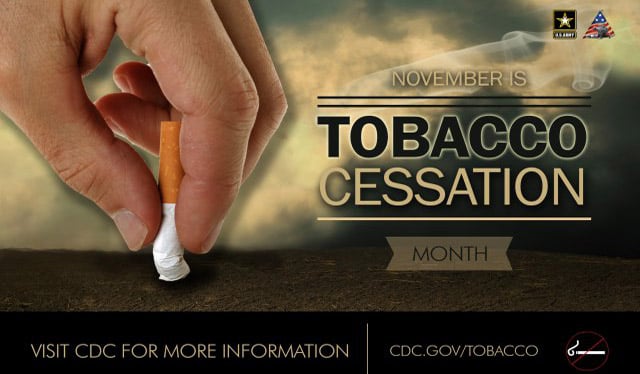
Ask the Flight Surgeon / By MAJ Steven E. Brown, DO, MPH: Q: I have had a cold with a cough for a few days, but when I went to see my flight surgeon, I was not given antibiotics. Why not?

Photo Credit: U.S. Army
FS: It is a common misperception that people with cold or flu symptoms require a prescription for an antibiotic from their provider to get better. Antibiotics treat bacterial infections such as seen in strep throat, most inner ear infections or bacterial pneumonia. The majority of cold and flu symptoms however are caused by viruses and are therefore not affected by antibiotic therapy. Sinus infections are another common ailment that often lead to an expectation of antibiotic treatment. You might be surprised to know that sinus infections are also frequently caused by viruses. While it is true that viral sinus infections can eventually lead to a secondary bacterial infection, this typically takes ten or more days, and even then the infection may not require treatment with antibiotics. Selective and appropriate use of antibiotics is essential to avoid subjecting people unnecessarily to possible side effects like nausea, vomiting, diarrhea or strong allergic reactions. Furthermore, over-prescribing antibiotics can lead to decreased effectiveness of antibiotics (a.k.a. antibiotic resistance) that reduces our ability to fight bacterial infections when we really need to.
Q: What is antibiotic resistance?
FS: Before the discovery of antibiotic medications, people were at a high risk of dying from bacterial infections most Americans are not even familiar with today. Most have never met anyone infected with, let alone died from, tuberculosis, leprosy or bubonic plague. However, just 100 years ago, tuberculosis was among the leading causes of death in the United States. While these infections still exist, antibiotics (and vaccinations to prevent them) have made many of these killers of the past relatively inconsequential. Nevertheless, bacterial agents have continued to change in ways that can make antibiotics ineffective. Antibiotic resistance occurs when bacteria undergo genetic mutations or gain genetic material from other bacteria that allows them to defeat an antibiotic’s mechanism of action. To some extent the development of antibiotic resistance is unavoidable, but this process can be greatly accelerated when antibiotics are used too frequently and for inappropriate lengths of time. The Center for Disease Control and Prevention (CDC) estimates that over 2 million illnesses in the U.S. each year can be attributed to antibiotic resistance. If antibiotics lose their efficacy against bacteria, we may find ourselves susceptible to the microbes we once thought we had conquered.
Q: Should I ask for antibiotics?
FS: It is always appropriate to have a frank discussion with your medical provider about possible treatment options, to include the prescription of antibiotics. Often, laboratory tests, as well as signs and symptoms of your illness, may indicate a viral illness or it may be too early in the course of an infection to determine if the cause is bacterial so your provider will recommend against antibiotic usage. This should not be interpreted as not receiving quality care. Watchful waiting is a treatment technique that consists of paying close attention to certain aspects of the illness, such as a high fever or prolonged duration, and taking action once the cause is more apparent. A follow-up appointment within a few days might be appropriate so that your provider can reassess your signs and symptoms and reconsider the need for antibiotic treatment.
Q: Can I fly on antibiotics?
FS: Most antibiotic medications are not, by themselves, disqualifying for flight. That said, most bacterial infections that require antibiotic treatment likely reflect a condition that should warrant a temporary break from flight activities as the symptoms themselves may distract from, or directly impact, safety of flight. In cases when antibiotics are used for prevention of infection, such as after stitches, or when they are used for long periods of time, such as for acne, antibiotics do not necessarily require grounding as long as your flight surgeon is aware of the situation and approves their use. Keep in mind, just as with any new medication, a trial period of at least 24 hours should be given to watch for unwanted side effects before resuming flight duties. All medications have a side effect profile (some more complex than others) so although common medications may be prescribed, waiting the 24 hours ensures we do not compromise safety of flight.
Fortunately, we still benefit greatly from antibiotics. In order to maintain antibiotic effectiveness, let us be good stewards of these medications.
Fly safe!
Dr. Brown
Questions?
If you have a question you would like addressed, email it to This email address is being protected from spambots. You need JavaScript enabled to view it.; we’ll try to address it in the future. See your unit flight surgeon for your personal health issues.The views and opinions offered are those of the author and researchers and should not be construed as an official Department of the Army position unless otherwise stated
MAJ (Dr.) Steven E. Brown is a flight surgeon at the U.S. Army School of Aviation Medicine, Fort Rucker, AL.








